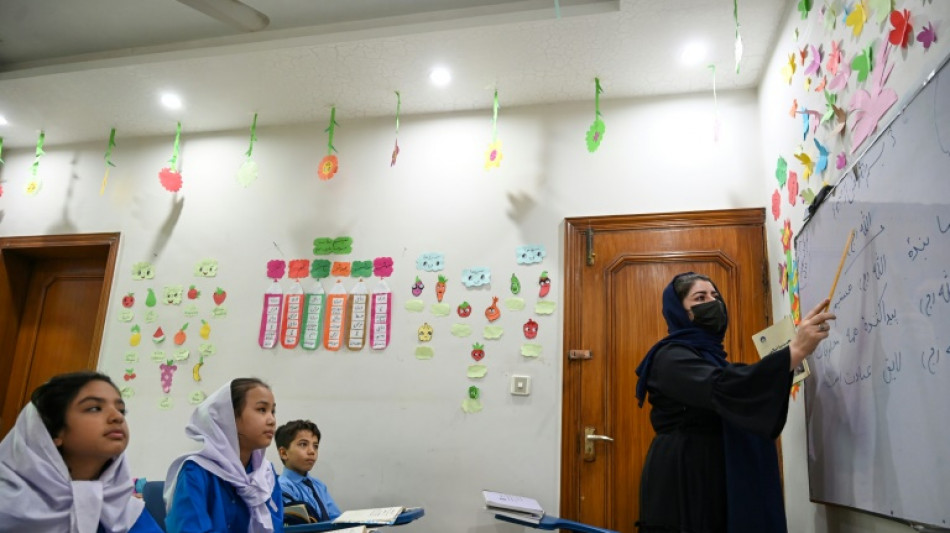
RBGPF
0.1600


Schools teaching Afghan children in Pakistan began to close on Monday as families went into hiding ahead of a deportation deadline.
Islamabad has launched an unprecedented crackdown on the 1.7 million Afghans it says live illegally in Pakistan, giving a Wednesday deadline before mass arrests begin.
For some Afghan girls in Pakistan, the school closures could mean the end of lessons for the foreseeable future, as they face being forced to return to a country where they are barred from a secondary education under the Taliban government.
"We came here to be educated, to have a good life," said 16-year-old Nargis Rezaei, who arrived in Pakistan with her family after the Taliban surged back to power in August 2021.
"Every Afghan doesn't want to go back to Afghanistan," she said. "(Girls) don't have freedom at all."
Five schools in the capital Islamabad and adjacent city Rawalpindi that taught Afghan children in their national language were set to temporarily shut after Monday's lessons ended, a senior teacher told AFP on condition of anonymity.
The schools had catered to around 2,000 students.
Teachers said a police roundup was targeting undocumented Afghans, as well as affecting legally resident migrants, making students afraid to leave their homes and meaning attendance had dropped by two-thirds, forcing closures.
"We teach here in an atmosphere of fear and tension, that the police may come and take us away," said female mathematics educator Gity Wakilzda.
"We are scared and living a very hard life," said the 35-year-old from Kabul.
- 'Schools closing here too' -
The United Nations (UN) says at least 600,000 Afghan migrants have arrived in Pakistan since the Taliban takeover.
Since then, Pakistan's security has deteriorated with an increase in attacks it blames on militants operating from Afghanistan, a situation it accuses Kabul of failing to stymie.
From Wednesday, authorities will arrest undocumented Afghans and take them to processing centres set up around the country, from where they will be sent to the border to be deported.
The Taliban government has called the eviction of Afghan refugees "unfair and unjust".
Thousands of Afghans -- some of whom have lived for decades in Pakistan or were born in the country -- have begun to return voluntarily.
But the UN this weekend warned forcible returns could be "a human rights catastrophe", with women and girls at particular risk.
Since seizing power, Afghanistan's Taliban government has imposed a strict interpretation of Islamic law which largely excludes women from public life.
Teenage girls and women are barred from schools, parks and gyms, and thousands have lost their government jobs.
"I am heartbroken," said 24-year-old Medina Ibrahim, whose nephews attended one of the schools that will close from Tuesday.
"We moved here to Pakistan so that our children can get an education but schools are closing here too. Where will we go now?"
Afghanistan is in the grip of a grinding humanitarian crisis with the widespread withdrawal of foreign aid following the collapse of the US-backed government.
M.Saito--JT